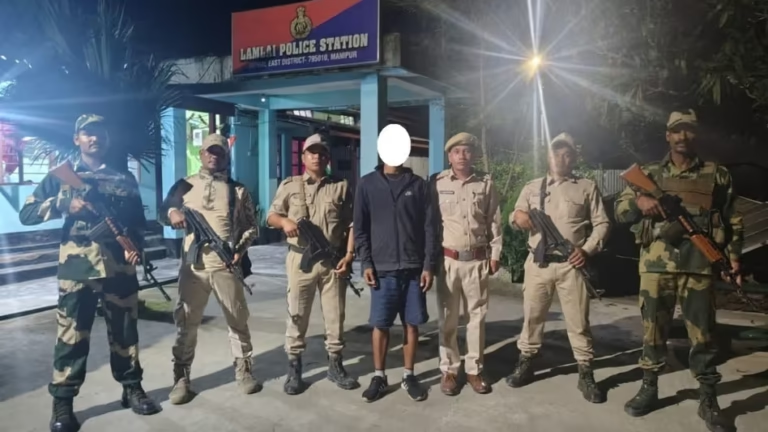Manipur Governor Urges NHIDCL to Expedite Ongoing Highway Projects for Regional Progress
Summary of the News Article
Manipur Governor Anusuiya Uikey has called upon the National Highways and Infrastructure Development Corporation Limited (NHIDCL) to speed up the completion of ongoing highway projects across the state. Stressing the importance of efficient road connectivity, the Governor highlighted how these projects are essential for economic growth, seamless transportation, and the overall development of the region. This appeal comes as Manipur continues to grapple with the challenges posed by inadequate infrastructure.
Accelerating Highway Development in Manipur: A Call for Action
Introduction: Why Roads Are More Than Just Concrete Paths
Picture this: a bustling state, rich in culture and resources, struggling to reach its full potential because of poor road infrastructure. That’s the story of Manipur, a region where roadways serve as lifelines for connectivity, trade, and growth. Recognizing this, Governor Anusuiya Uikey’s recent plea to NHIDCL for expediting highway projects couldn’t have come at a better time.
Let’s explore what this means for the state and its people.
The Current State of Highway Projects in Manipur
Why Are Highways So Crucial for Manipur?
Manipur’s geographical location as a gateway to Southeast Asia makes its highways more than just local assets—they are global connectors. Here’s why they matter:
- Trade Facilitation: They link the state to major trade routes, boosting commerce.
- Social Connectivity: Highways connect remote villages to cities, fostering inclusivity.
- Economic Development: Better roads attract investments and enhance business opportunities.
Ongoing Projects by NHIDCL
NHIDCL, tasked with improving India’s highway infrastructure, is spearheading multiple projects in Manipur. These include:
- Four-Lane Expansion of NH-37: Enhancing connectivity between Imphal and Jiribam.
- Imphal-Moreh Highway Upgrade: Strengthening ties with Myanmar for international trade.
- Trans-Arunachal Highway Connectivity: Creating seamless links across Northeast India.
These projects promise to transform Manipur into a transportation hub, but delays are hindering their potential.
Governor’s Call to Action: What Was Emphasized?
The Importance of Timely Completion
Governor Uikey stressed that delays in highway construction don’t just cost time—they cost opportunities. She urged NHIDCL to address these challenges proactively, emphasizing:
- Fast-Tracking Approvals: Reducing bureaucratic hurdles.
- Adopting Modern Techniques: Using advanced construction methods for efficiency.
- Enhanced Monitoring: Ensuring accountability at every project stage.
Focus on Quality and Sustainability
While speed is essential, the Governor also highlighted the need for durable and sustainable infrastructure. This includes:
- Weather-Resistant Roads: Essential for Manipur’s challenging terrain.
- Eco-Friendly Practices: Minimizing environmental impact during construction.
- Community Engagement: Involving locals to ensure long-term benefits.
The Challenges Slowing Down Progress
Terrain and Weather
Manipur’s hilly terrain and unpredictable weather often pose significant obstacles to highway construction. Landslides, heavy rainfall, and erosion make progress difficult, requiring innovative solutions.
Bureaucratic Hurdles
Delays in land acquisition, environmental clearances, and inter-departmental coordination further slow down the pace of development.
Resource Constraints
Inadequate funding, manpower shortages, and outdated equipment often contribute to project delays. Addressing these issues is key to accelerating progress.
The Role of Highways in Manipur’s Future
Economic Growth
Imagine a Manipur where farmers can easily transport their produce to markets, businesses can expand without logistical challenges, and tourism thrives thanks to smooth connectivity. That’s the power of good highways.
Strategic Importance
Highways like the Imphal-Moreh route don’t just benefit Manipur—they strengthen India’s Act East Policy by fostering trade with Southeast Asia.
Social Impact
For villagers in remote areas, highways mean better access to education, healthcare, and job opportunities. It’s not just about roads; it’s about empowerment.
The Path Forward: Solutions for Timely Project Completion
Public-Private Partnerships
Bringing in private sector expertise and investment can accelerate project timelines and improve efficiency.
Technology Integration
Using technologies like drone mapping, prefabricated structures, and AI-based project monitoring can overcome geographical and logistical challenges.
Capacity Building
Training local manpower and equipping them with modern tools can address resource constraints while creating employment opportunities.
Policy Reforms
Streamlining bureaucratic processes, offering financial incentives, and fostering inter-departmental collaboration are essential for sustained progress.
The Bigger Picture: What This Means for India
Manipur’s highways aren’t just regional assets—they’re national priorities. By improving connectivity in the Northeast, India can unlock economic opportunities, strengthen border security, and enhance its global trade footprint.
FAQs
- Why did the Governor urge NHIDCL to expedite projects?
The Governor highlighted the need for timely completion to boost Manipur’s connectivity, economic growth, and social development. - What are the major highway projects in Manipur?
Key projects include the NH-37 four-lane expansion, Imphal-Moreh Highway upgrade, and Trans-Arunachal Highway connectivity. - What challenges do highway projects face in Manipur?
Challenges include difficult terrain, unpredictable weather, bureaucratic delays, and resource constraints. - How do highways benefit local communities?
Highways improve access to markets, healthcare, education, and jobs, fostering inclusivity and development. - What role do highways play in India’s Act East Policy?
They enhance trade links with Southeast Asia, strengthening India’s geopolitical and economic presence.




